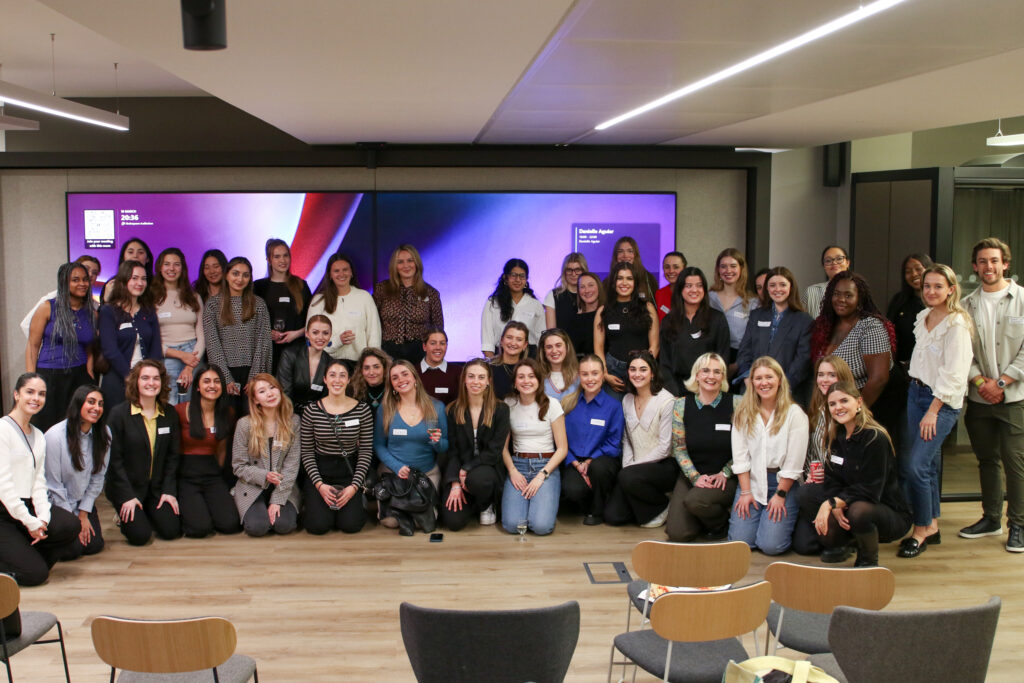The current state of hiring for startup sales talent
The sales game has become harder. With automation tools and AI-generated emails, inboxes are flooded with what passes as “personalisation.” Standing out is tough, and junior salespeople have to be exceptional at getting noticed.
Early-stage startup hiring differs massively from scale-ups. Early-stage startups may or may not have “product-market fit”, let alone “sales product market fit”. There’s no neatly defined playbook, no outbound recipe, often no leadership to steer junior hires, and less brand awareness. Junior sales hires at early stage startups therefore aren’t just required to cold call and send emails, they also need to:
- Trial multiple different outbound methods
- Test different ICPs
- Learn, iterate, improve, and then start all over again every time the product changes
- …and of course hustle relentlessly to deliver results
In short: they need to do it all, simultaneously. It’s tough. By contrast, for junior salespeople in later-stage companies, it’s more about executing a pre-defined playbook. It’s a much more linear relationship between ‘input-in’ and ‘output-out’.
Bottom line: hiring early-stage sales talent is really f***ing hard. Startups often talk about how difficult it is to transition away from founder-led sales because they’re trying to hire this unicorn-type candidate.
How to hire junior startup sales talent
Common hiring mistakes startups make for junior sales positions
- Underestimating how hard it actually is: It’s tempting to believe people should desperately want to work at your startup, but you should expect it to be hard. If it’s ‘easy’, you might have taken a shortcut.
- Paying peanuts and expecting rockstars: Trying to hire your dream candidate for a £25k base plus some vague bonus structure isn’t just ambitious, it’s delusional. You get what you pay for.
- Hiring phone-shy talent: At the risk of passing judgement on Gen Z, the younger generations generally prefer messaging to calling. If cold-calling is part of your sales strategy, make sure candidates aren’t allergic to picking up the phone.
- Ignoring the rise of the “Commercial Associate”: There’s a growing trend of calling roles “Commercial Associate” rather than “SDR” or “BDR” to attract a more entrepreneurial / cerebral candidate. Companies like Tessian (now Proofpoint), Omnea, Encord, Pactio, and Platformed are already doing this. Call it marketing or call it clever, but it seems to be working.
- Not giving junior sales hires enough time: Finding “sales product-market fit” takes patience and persistence. Don’t panic if results aren’t immediate.
- Overvaluing prior SDR experience: Yes, most startups say they want SDRs with “1–2 years’ experience,” but you might be chasing the wrong signals. We’ve found adjacent experience (e.g. customer-facing roles like recruitment) and potential are great indicators. Why?
- SDR experience at scale-ups typically means executing someone else’s well-defined playbook and therefore doesn’t translate to what you’re actually looking for
- Anyone decent at an SDR role for that long usually wants (or has already got) a promotion to a closing role
You might be better off looking for adjacent experience (e.g. customer-facing roles) or just raw potential.
Key Traits to Look For in Junior Sales Talent
Ask any sales hiring manager, and they’ll enthusiastically reel off 5-10 “green flags” – including, but not limited to:
- Hunger
- Resilience
- Grit
- Determination
- Ambition
- Hustle
- Proactivity
- Verbal comms
- Written comms
- Rapport building
- Entrepreneurship
- IQ & EQ
- Coachability
- Adaptability
- Low ego
- Athletes
- …
They’re probably all right. But it’s a uselessly long list. So, I’ll now (in a very self-aware fashion!) fall into the same trap by taking my best stab at what I think is most important:
- Hunger
- IQ
- Comms

Identifying Top Junior Sales Talent
The real headache of course: how do you test for these intangibles? You can’t exactly measure them via CVs (the most overrated application method for sales applications).
- Accept reality: this will be hard. Pursue multiple channels to maximise the probability of finding the best quality. And yes, I do (unashamedly) suggest you look at using Jumpstart’s pre-vetted sales pool as an additional channel here.
- Interview extensively if you’ve got the time (or find someone to do that for you, e.g. Jumpstart?!). It’s genuinely the best way to understand candidates’ personalities and minimise the risk of making a poor decision.
- Psychometric tests exist but I’ve yet to find one that genuinely works. If you know one, please send it my way; we’d probably incorporate it into Jumpstart’s selection process.
- Try intro videos as part of your assessment process. Quick videos reveal communication skills in a way that CVs obviously cannot. Again, plugging Jumpstart’s video profiles here…
- Some startups hire multiple SDRs and essentially A/B test them through probation. I won’t judge morally, but ideally, you should have confidence you’ll keep them both.
So, how do you hire junior startup sales talent?
Getting junior sales hires right can be a key contributor to growth.
Getting it wrong costs you time, money and a bunch of leads.
That’s why hundreds of startups use Jumpstart. We find the top 1% of junior sales talent who are ready to make an impact from day one.
👉 Register interest here to see the top 1% of startup sales talent.
Author’s Note: Sales advice is everywhere, and everyone has an opinion (including, apparently me). This guide comes from my experience observing hundreds of startups hire junior sales talent. I’d genuinely love your reflections or counterpoints. There’s always a chance I’m just talking nonsense. Ping me a note (Matthew) with comments/reflections.







